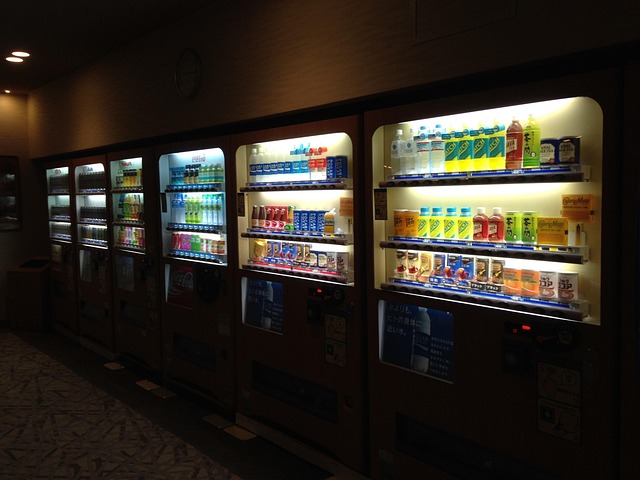In a fast-paced, convenience-driven society like Singapore, the idea of vending machines replacing traditional retail stores is no longer far-fetched. These machines have evolved far beyond dispensing soft drinks and snacks. Today, they offer everything from hot meals and electronics to skincare and even clothing. As automation and smart technologies become more mainstream, the question arises: Can vending machines realistically replace retail stores in Singapore?
The Rise of Smart Vending in Singapore
Singapore has always been a frontrunner in adopting smart city innovations. The government’s push towards a Smart Nation has encouraged businesses to experiment with automated retail, and vending machines are a key component of this shift.
Over the past few years, vending machines have sprouted in MRT stations, business parks, university campuses, and even HDB void decks. They now sell salads, bubble tea, electronics, and even chilli crab. Brands like Chef-in-Box, Ooh Mala, Mr Bean, and Tokyo Milk Cheese Factory have embraced vending solutions to reduce overhead costs while reaching more consumers.
Why Are Shop Rentals So High in Singapore?
One of the main reasons vending machines are gaining popularity is the prohibitively high cost of retail space in Singapore. Several key factors contribute to this:
- Scarce Land Supply: Singapore’s small land area (728 sq km) creates intense competition for prime real estate, especially in central districts and malls.
- Demand for Prime Locations: Retailers vie for spots with heavy footfall, such as Orchard Road, Bugis, and suburban malls near MRT stations. This demand drives up prices.
- Government Land Ownership: Much of the land is owned by the state, which controls supply through long-term leasehold and commercial tenders. This centralised system stabilises development but maintains premium pricing.
- High Operating Costs: On top of rent, businesses must pay for air-conditioning, mall management fees, marketing levies, and staffing — all of which add to their cost base.
- Rental Price Hikes By Landlords: To cover high initial investments, increasing costs of maintaining properties, and expectations of high profit margins, rental prices have been increasing since the pandemic in 2020.
Retail Rent Challenges: Singapore vs. Hong Kong
Singapore’s high retail rents mirror similar issues in cities like Hong Kong, another land-scarce, high-density financial hub. In fact, Hong Kong has historically topped the global charts for retail rental prices, especially in areas like Causeway Bay and Tsim Sha Tsui.
Like Singapore, Hong Kong’s retailers face:
- Exorbitant lease terms in high-traffic zones
- Dependence on tourism-driven footfall (which plummeted during COVID-19)
- Operational inflexibility due to long leases and landlord dominance
These pressures have led to a shrinking of physical retail space, with more brands shifting online or exploring automated retail solutions. In both cities, vending machines and pop-up kiosks are increasingly seen as sustainable, lower-risk alternatives for new or niche brands trying to gain exposure without committing to long-term leases.
Japan’s Vending Machine Industry
While Singapore and Hong Kong are facing similar issues that led to the rise of vending machines, Japan is home to one of the most extensive and diverse vending machine networks in the world, with over 3.5 million machines across the country. These machines offer everything from soft drinks and snacks to umbrellas, fresh flowers, hot meals, and even clothing. This industry generates billions of dollars annually and has become an iconic part of modern Japanese life.
5 Reasons Why Japan Has a Thriving Vending Machine Industry
Several cultural, economic, and social factors explain why vending machines have flourished in Japan:
- High Labor Costs and Low Theft Rates
Japan has relatively high wages and a shrinking labor force due to an aging population. Vending machines help reduce staffing needs while still providing around-the-clock service. Additionally, Japan’s low crime rate makes it viable to place expensive machines and stock them with high-value goods without significant fear of vandalism or theft.
- Limited Space and Urban Density
With densely packed cities and limited space for traditional retail, vending machines offer a compact and efficient way to provide goods, especially in locations where a full storefront wouldn’t be feasible. - Technological Innovation
Japan’s early adoption of automation, advanced payment systems (including IC cards and mobile wallets), and consistent maintenance standards have made vending machines user-friendly and reliable. - Consumer Culture and Convenience
Japanese consumers highly value convenience, speed, and novelty. Vending machines meet these needs while also reflecting a unique aspect of Japanese consumer culture, where even the mundane becomes a canvas for creativity, such as seasonal drinks, regional specialties, and themed machines. - 24/7 Demand
With long working hours and a vibrant nightlife culture, many Japanese people rely on vending machines for meals, drinks, or small conveniences at all hours, especially at train stations, office buildings, and residential areas.
Singapore shares many of these characteristics that led Japan to become the number 1 country with the most number of vending machines in the world.
However, Singapore’s hawker culture and the availability of shopping malls all over the city state might reduce the dependency on vending machines. At this point, many residents still enjoy freshly cooked food that is affordable and the ability to have leisure time outside of work. This differs greatly to the lifestyle of the Japanese and might slow down Singapore’s demand for vending machines.
5 Benefits of Vending Machines Over Retail Stores
Businesses and investors in Singapore have been testing this market and increasing its investments due to these factors:
- 24/7 Accessibility
Vending machines operate round the clock, making them ideal for a city with high commuter traffic and long working hours. - Lower Operational Costs
Vending machines bypass the hefty rental and manpower costs associated with physical stores, a major advantage in high-cost cities like Singapore and Hong Kong. With Singapore’s strict Work Pass eligibility and quotas, businesses need to steer towards technology as an alternative to manpower. - Smaller Footprint
Machines require minimal space, making them ideal for MRT stations, void decks, or lobbies where conventional shops cannot operate. - Contactless and Efficient
Post-pandemic, contactless shopping became more desirable. Vending machines cater to this preference, offering a fast and safe alternative to shopping in crowded malls. - Scalability
Brands can scale more rapidly using vending machines. Instead of months of fit-out and licensing, machines can be deployed across the island in a matter of days.
4 Limitations and Challenges of the Vending Machine Retail Concept
Despite their advantages, vending machines have clear limitations:
- Limited Product Range: Due to space and refrigeration constraints, vending machines can’t match the diversity of traditional retail. Location of vending machines require readily available electrical sockets.
- Customer Experience: Retail is not just about products, it’s about tactile interaction, ambience, and human service. These emotional and experiential elements are lost in automated vending.
- Technical & Maintenance Issues: Machines can break down, jam, or face payment glitches. Regular servicing and inventory control are essential, which adds operational burden.
- Brand Identity & Engagement: Physical stores allow immersive storytelling and deep customer engagement. Vending machines offer minimal opportunity for brand expression beyond packaging and interface.
Impact of the Vending Machine Retail Concept on Workforce and Foreign Immigration in Singapore
The expansion of vending machine retail raises significant implications for Singapore’s labour market and foreign manpower landscape.
1. Reduction in Retail Jobs
With vending machines replacing some cashier and front-line roles, especially in F&B and convenience retail, there may be a gradual reduction in low-skilled retail positions. Jobs like cashiering, basic sales assistance, and food counter service could shrink in volume, particularly for part-time or hourly workers.
2. Shift in Job Profiles
Rather than eliminating jobs entirely, vending automation is likely to shift workforce demand toward:
- Technical maintenance of machines
- Logistics and restocking
- Data analytics, inventory tracking, and sales optimisation
- Remote monitoring and operations
This will require reskilling of workers, especially older or low-wage employees who are most vulnerable to automation.
3. Foreign Workforce Impact
Singapore’s retail and F&B sectors have traditionally depended on foreign workers for staffing due to manpower shortages. However, the government has been tightening quotas and raising minimum salaries to encourage local hiring and reduce over-reliance on foreign labour.
As more retail businesses adopt vending machines and reduce staff needs:
- The demand for foreign workers in low-skilled retail jobs may decline.
- Employers may be incentivised to invest in machines instead of paying higher foreign worker levies or meeting local salary benchmarks.
At the same time, new higher-skilled foreign talent may be needed in roles such as vending tech development, AI systems, machine learning, and logistics optimisation – areas aligned with Singapore’s digital economy ambitions.
A Complementary Role, Not a Complete Replacement
While vending machines won’t replace all retail formats, they offer a powerful complementary role in Singapore’s evolving consumer landscape. Hybrid retail – blending physical stores, e-commerce, vending, and pop-ups, and even home-based businesses is becoming the new norm.
Examples of this include:
- Food brands selling ready meals in vending machines while running full-scale restaurants
- Fashion or beauty brands offering curated product samplers in high-traffic vending machines
- Retailers using vending machines as “click-and-collect” points for online orders
The Road Ahead: Smart Integration Into a Hybrid Retail Model
In Singapore’s high-cost, tech-savvy economy, vending machines will increasingly become part of a multi-channel retail strategy, especially for brands aiming to reduce fixed costs or reach new demographics.
Just like in Hong Kong, where street-level retail is being reshaped by automation and smaller formats, Singapore’s retail future will not be defined by replacement — but by smart integration. Vending machines won’t end malls or boutiques, but they will reshape how, when, and where we shop.
Vending Machines and The Future of Retail
Singapore’s high rental landscape, tight labour policies, and Smart Nation vision are accelerating the rise of vending machines as a viable retail model. While they cannot fully replace the variety, service, and emotional connection of traditional stores, vending machines offer lean, scalable, and cost-effective alternatives that help businesses adapt to changing economic realities.
The biggest winners will be those who blend automation with human touch — and design customer experiences that work both online and in the machine, just as much as they do in-store.







